Pakistanis are planting trees like never before! The message has been heard loud and clear: Climate change is real and it’s here. If we don’t do something about our denuded landscape right now, we are all headed for disaster.
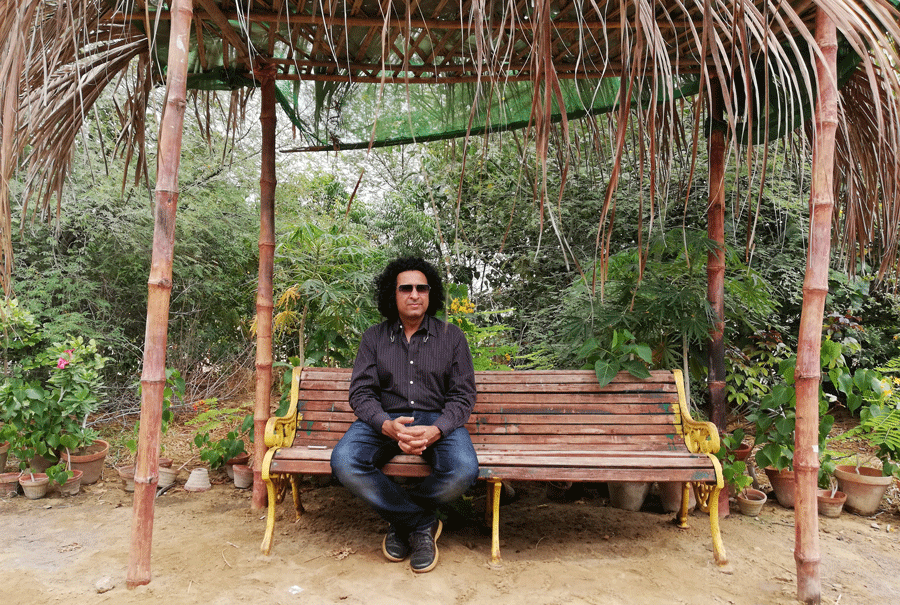
Shahzad Qureshi of Urban Forest brings an even more innovative twist to the tree planting drive. Plant an Urban Forest! HomeLoveLifestyle caught up with Shahzad and learnt more about this fascinating initiative.
Explain the concept of an Urban Forest.
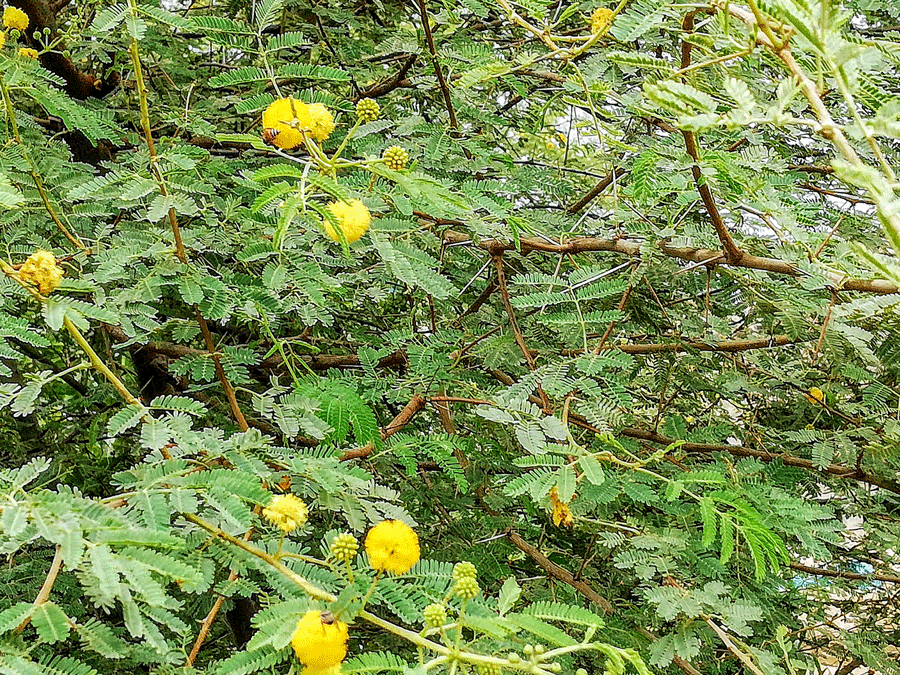
An urban forest refers to a mosaic of small and larger patches of green within a city which combine to form a canopy over the whole city. We create these patches through a Japanese method called the Miyawaki Method. This method allows us to grow a forest in a small area, it grows extremely fast, and it provides 30 times more benefit in terms of oxygen production, Co2 absorption etc. Because there is so much leaf coverage, everything is amplified. Plus the forest hosts a beautiful eco-system inside it. Birds, bees, start appearing and start balancing the environment, temperatures around it will drop, air quality will improve.
The idea is that one can plant an urban forest anywhere. Give us some examples of forests you have planted in Karachi.
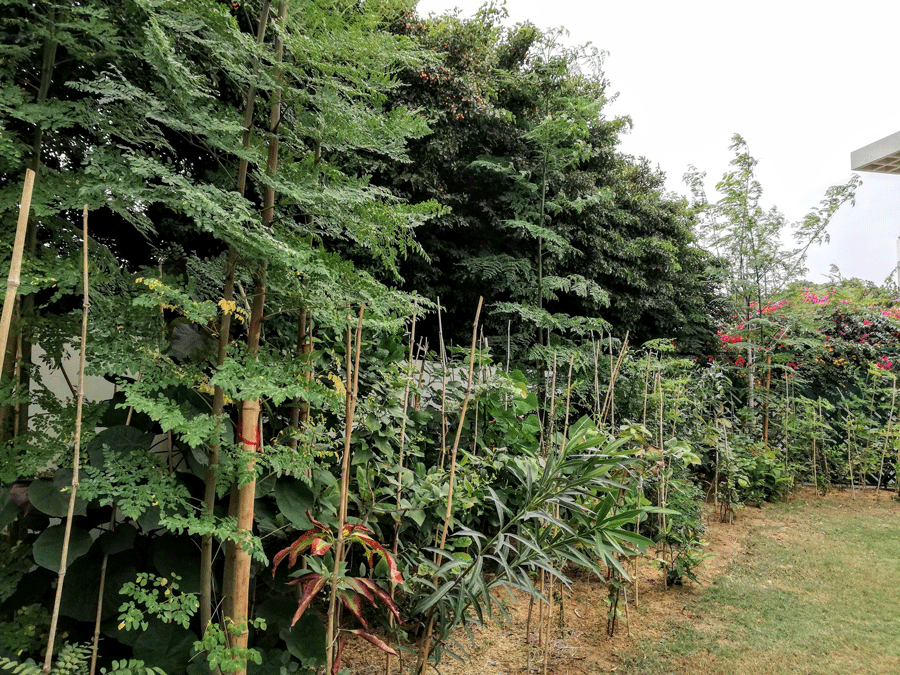
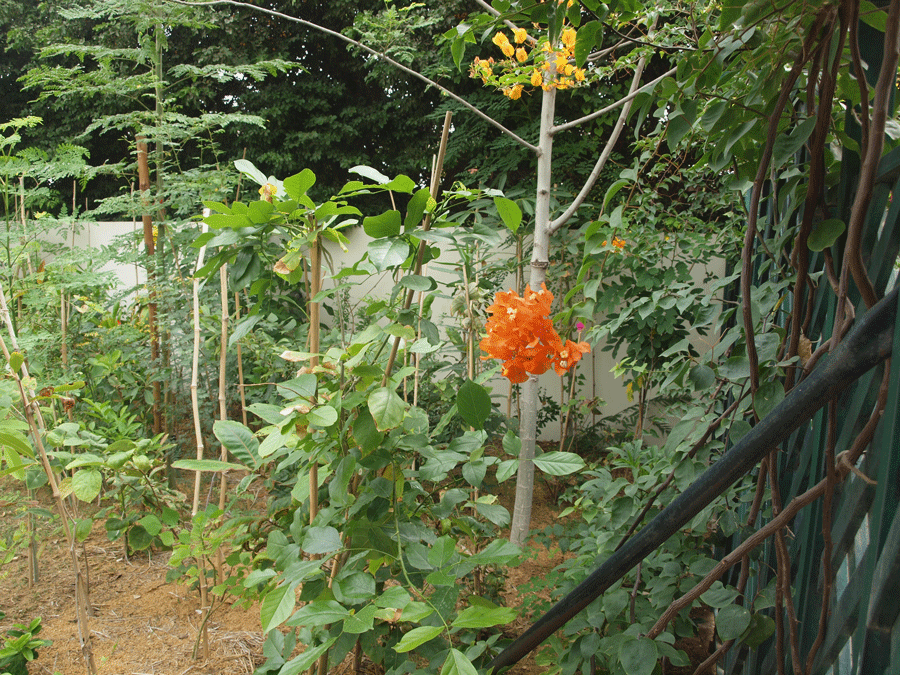
Our first pilot project occupied around 400 square metres and has developed into a decent forest. Then we have planted a forest in a residence, we have left a small grassy patch and planted the forest around it. This will not only add to the home aesthetics but the benefits are tremendous as compared to a conventional garden. Having a natural forest in your home or locality is extremely beneficial.
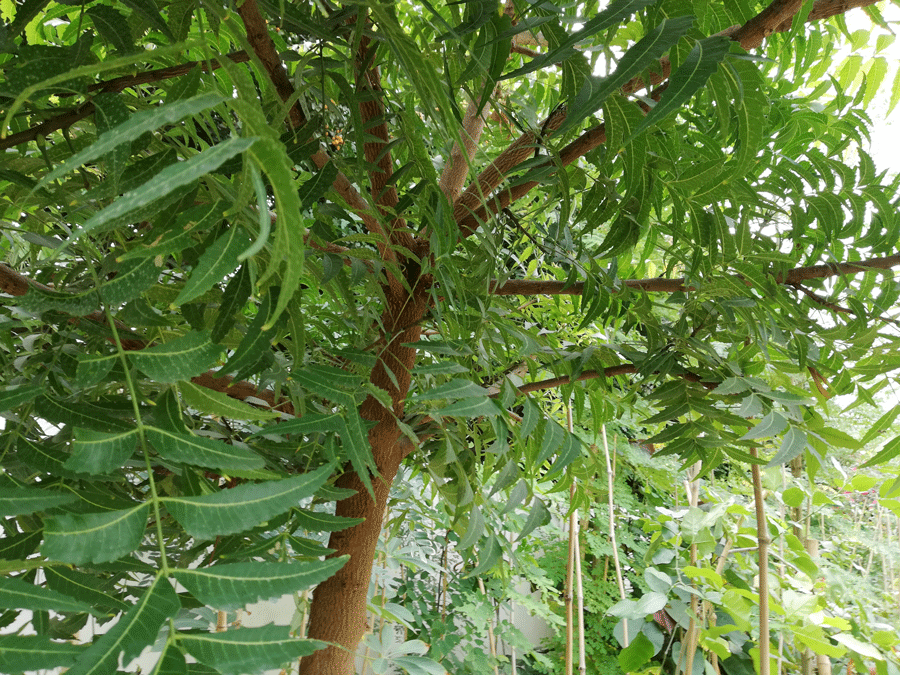
Then we have planted a forest in the periphery of a mosque, using water stored after wuzu. It occupies a space of 200 sq m and it is doing very well. We have another forest in a local school which has the additional benefit of introducing students to native tree species and plant and animal life. There is another project of ours at the NED university, the smallest forest we have planted covers 80 sq m.
You do not use any fertilisers or pesticides?
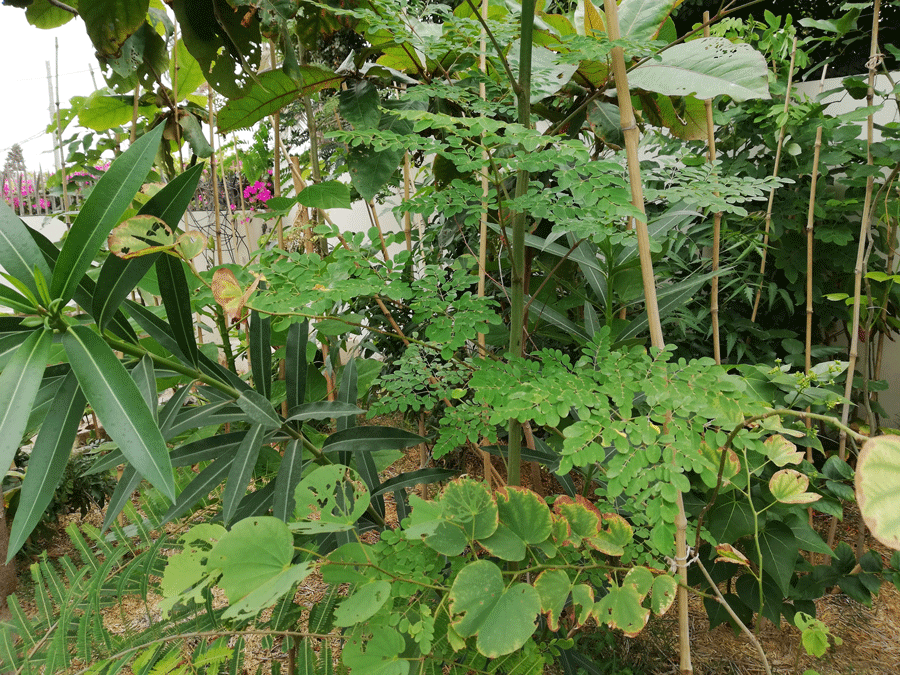
No we don’t. We first add locally available bio mass to the soil and mix it well. There are three types of bio mass and the idea is add nourishment to the soil. We want a very healthy soil full of life like bacteria and nematodes to build the fungal network which is required, Then we plant native species of trees and bushes. After this we do nothing except water the forest. We welcome all kinds of life, including pests and insects which eat the leaves. We let the forest fight its own fight. The trees around it actually help and eventually the pests are fended off. We let nature operate the way it is is supposed to, we don’t interfere.
How much water is required to grow a forest?
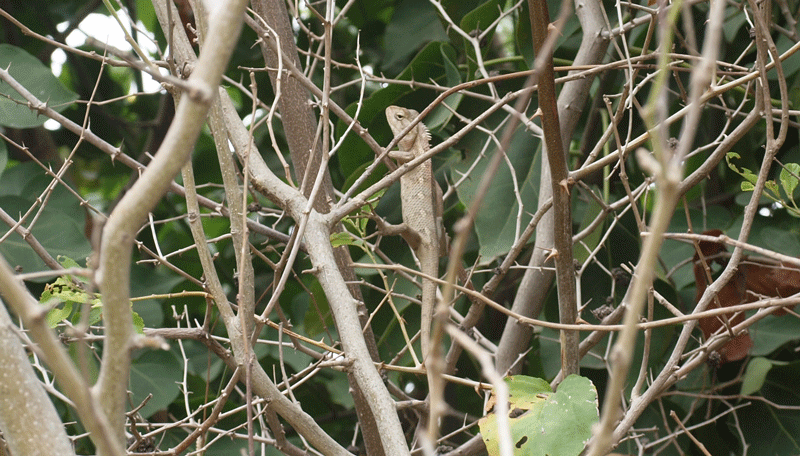
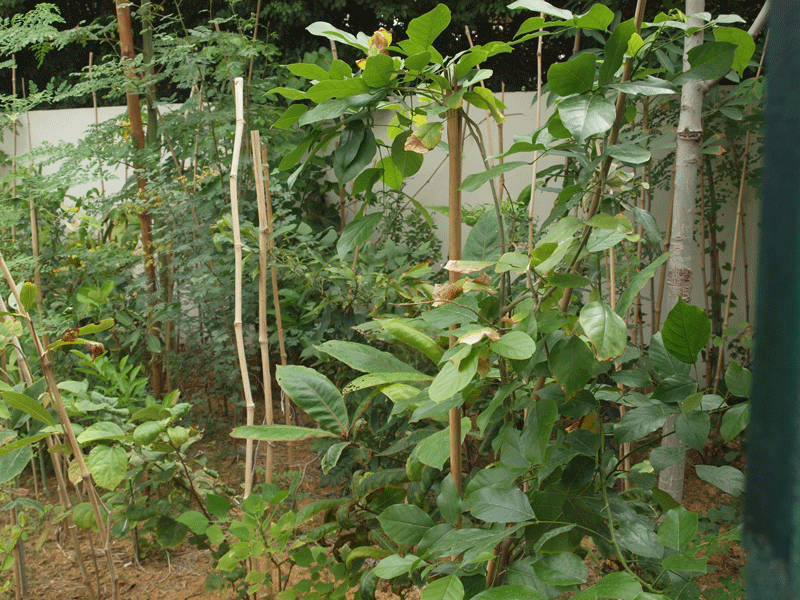 Not that much, less than 100 gallons per 100 sq m. it is the same as the amount of water it takes to maintain a standard lawn, So you can maintain grass or plant a forest in its place. And in three years, it will require no more watering.
Not that much, less than 100 gallons per 100 sq m. it is the same as the amount of water it takes to maintain a standard lawn, So you can maintain grass or plant a forest in its place. And in three years, it will require no more watering.
We have an entire park to forest and so for that we have set up a plant for filtering and storing sewerage water.
What kind of response have you been getting?
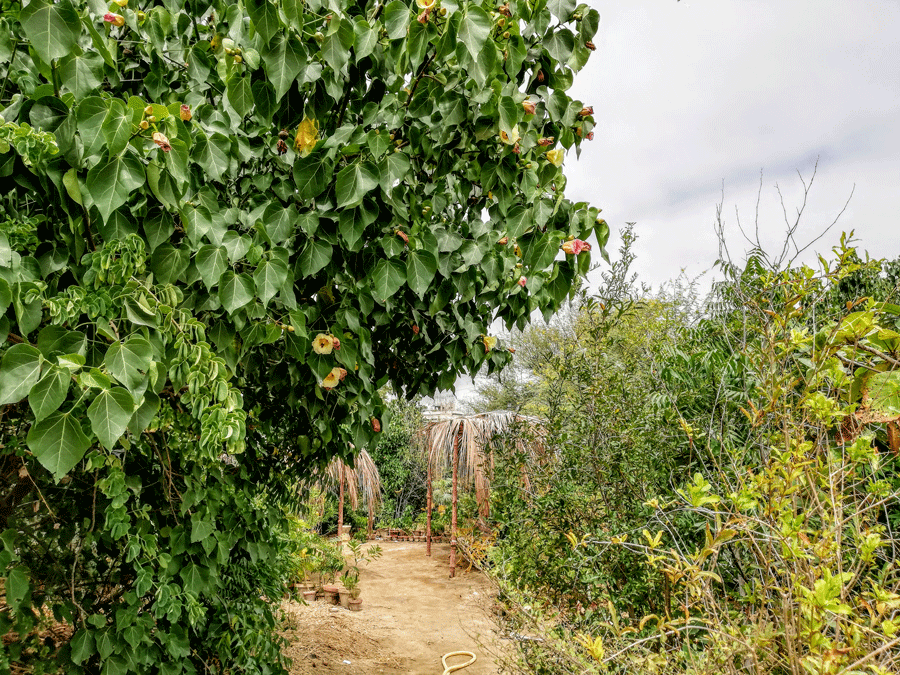 When people visit our forests, they walk in, sit here and when they walk out pretty much everyone says, ‘there was something different in there.’ For one, the temperature is 4 to 5 degrees lower. So it’s a no-brainer. With more forests, our energy needs will drop, air quality will improve…you will just start feeling healthier.
When people visit our forests, they walk in, sit here and when they walk out pretty much everyone says, ‘there was something different in there.’ For one, the temperature is 4 to 5 degrees lower. So it’s a no-brainer. With more forests, our energy needs will drop, air quality will improve…you will just start feeling healthier.
There is a concept of ‘forest bathing’ in the East. Doctors prescribe it in Japan, to just go and sit in the forest. Besides visually being stress relievers, trees have other benefits as well. When they sense a presence, trees start emitting certain aerosols in the air, through their bark and leaves. These tannins are especially beneficial for our immune system.
Tell us about your park project?
We have adopted a three acre park in Clifton and we need 50,000 trees to fill it. It costs Rs 950 to plant one tree, this includes the cost of tilling the soil. We are also trying to organise a system of collecting organic waste from the neighbourhood and use it as compost.



















